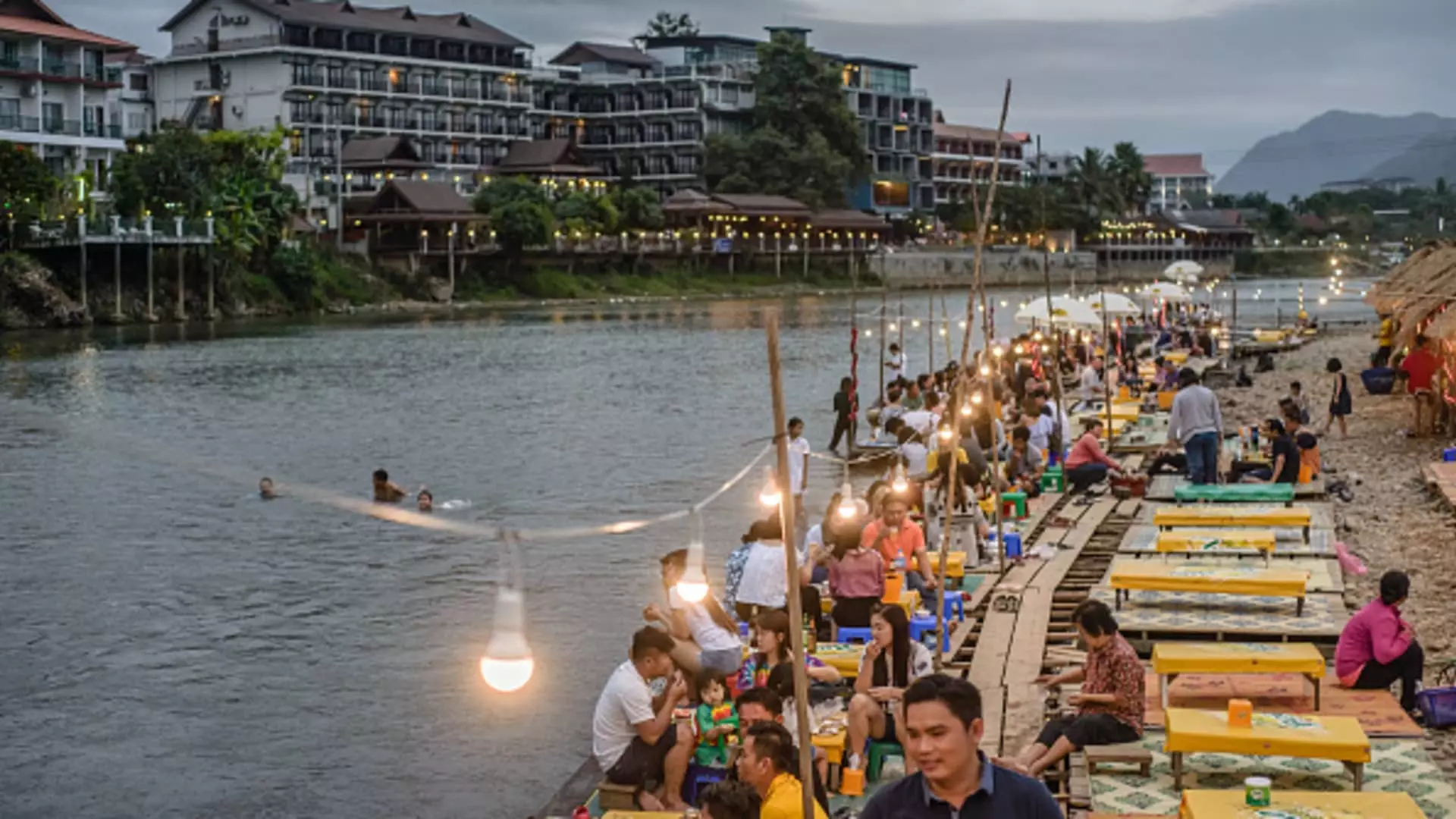The tragic deaths of six travelers in Vang Vieng, Laos, due to suspected methanol poisoning have raised alarm bells regarding the safety of alcoholic beverages consumed in popular tourist destinations. This incident underscores a global health issue that often remains overshadowed by more pressing concerns but has devastating consequences.
In mid-November, visitors from Australia, Denmark, the United Kingdom, and the United States succumbed to what authorities believe was methanol poisoning after indulging in alcoholic drinks during a night out in the tourist town of Vang Vieng. The subsequent reports indicate that around fourteen individuals suffered from severe illnesses, with local media accounts illuminating the fear surrounding the situation. One of the affected travelers managed to return to New Zealand, highlighting the cross-border implications of this public health crisis.
Methanol is often found mixed into low-cost alcoholic products, especially those that are home-distilled or sold illicitly. Unlike its more commonly utilized counterpart, ethanol, methanol is colorless and odorless, making it challenging for consumers to identify. Even a minuscule amount—just 30 milliliters—can lead to lethal outcomes, while smaller doses can have debilitating effects, including blindness. This Scotch-tape-like invisibility of danger is alarming and may lead to even more tragic events reminiscent of this recent incident.
The Global Scale of Methanol Poisoning
The issue of methanol poisoning is not isolated to Laos; it is a substantial public health risk that has been exacerbated across various regions. According to the non-governmental organization Doctors Without Borders, methanol poisoning has led to more than 12,900 fatalities worldwide over the past few years. In light of this grim statistic, it is concerning to note that many people remain unaware of the dangers associated with methanol consumption.
Regions in Asia face the gravest threat, with many incidents tied to improperly distilled products. Tourists are particularly vulnerable; notable examples include mass poisoning incidents in Indonesia and a high-profile case in Iran, where consumption of methanol spiked during the early days of the Covid-19 pandemic, resulting in alarming death tolls. These incidents reflect a profound lack of awareness and the existence of illegal channels that produce and distribute dangerous alcoholic beverages.
So, what can be done to prevent these dreadful occurrences? Increased awareness and education about the risks of methanol poisoning are essential. Tourists and locals need to familiarize themselves with safe drinking habits and steer clear of establishments known for dubious practices. Governments can play a crucial role by establishing stricter regulations surrounding alcohol production and sales, ensuring that only licensed vendors sell drinks.
Furthermore, the medical community must be well-versed in identifying symptoms of methanol poisoning, as they often mimic milder conditions such as food poisoning or hangovers. With symptoms like dizziness, vomiting, and blurred vision, it is vital for healthcare professionals to recognize the potential severity of a patient’s condition and respond appropriately.
Cautious Consumption: A Traveler’s Guide
For those planning to venture into high-risk areas, it’s advisable to adhere to a few simple guidelines. Only consume alcohol that is clearly labeled and comes from reputable sources. Sit on the safe side by choosing beer, wine, or cocktails made from recognizable brands. Additionally, avoid alcohol that is served from unlabeled containers or during informal settings.
The Facebook page “Just Don’t Drink Spirits in Bali” is a grassroots effort raising awareness of similar risks in Bali and other tourist hotspots. Its creator emphasizes the importance of practicing caution, understanding that while these destinations may offer unforgettable experiences, they also hide perilous traps that can turn joy into tragedy in an instant.
The devastating toll taken by methanol poisoning serves as a reminder that the allure of travel and indulgence can come at a significant risk. This tragedy in Laos is but a snapshot of a wider concern—a global challenge requiring collective awareness, regulation, and responsible consumption. Travelers must be guided by a vigilant mindset, as the next drink could unknowingly come with dire consequences.


Leave a Reply